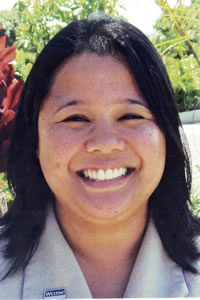Reaffirming Support For Visa Waivers
A little more than 15 years ago, Hawaii was successful in attaining greater flexibility in our nation’s visa waiver program. Our objective at the time was to ease travel restrictions from friendly nations like Japan. It took patience and persistence, but this effort paid off handsomely as travel from Japan to Hawaii rose dramatically and has continued to this day. And as we’ve witnessed, Japanese travel also expanded to other parts of the United States.
More recently, primarily through my work with the U.S. Conference of Mayors, the nation’s mayors pushed for the passage of the Tourism Promotion Act and affirmed support for the easing of visa restrictions to stimulate more travel from nations like Korea and China. While we’re seeing an uptick in travel among Koreans thanks to the visa waivers, prospective Chinese visitors still face challenges to obtain the approvals they need to come to the U.S.
According to a recent poll taken by the U.S. Travel Association, Chinese travelers revealed that the major obstacles to securing visas included, among other things, the length of time it takes to get an interview at a U.S. consulate, the cost of the visa and absence of a refund for a rejection, and the distance required to travel to a U.S. consulate.
According to the USTA, our nation has an inefficient and unpredictable visa application approval process, insufficient personnel to process and interview applicants, poor access to consulates, and poor planning and communication to applicants.
If we had kept pace with other nations in attracting foreign travel, the U.S. economy would have welcomed 78 million more travelers over the past 10 years, and they would have generated $606 billion in revenue and created more than 467,000 jobs.
On the heels of the passage of the Tourism Promotion Act and formation of the U.S. Travel and Tourism Promotion Advisory Board, of which noted island restaurateur Roy Yamaguchi is a member, we are poised to promote America in international markets for the first time. That’s why the Hawaii Hotel & Lodging Association and our national partner, the American Hotel & Lodging Association, are enthusiastically supporting the nation’s entry into a marketplace that’s been longdominated by foreign competitors.
While other industries may complain about government involvement, tourism is one industry that directly benefits from an active, if not aggressive, public sector. Just as Hawaii’s tourism has benefited from the support of the state and counties, so too can we benefit from the efforts of the federal government, particularly in the area of foreign travel.
The federal government’s contributions would be modest. It would require that we continue to preserve and expand the visa waiver program, striking a reasonable balance between hospitality and security. We would give the State Department the resources it needs to streamline visa reviews and recapture the 17 percent overseas travel market share we once held, develop emerging travel markets like China, and take other measures to encourage more travel to our country.
The USTA claims recapturing that 17 percent would mean 98 million more visitors, create 1.3 million more jobs by 2020, and inject nearly $860 billion into the U.S. economy all at very little cost to taxpayers.
As Hawaii has demonstrated, tourism is a growth industry. Visitors spend their money here, create jobs, and generate the income and tax revenues we need to enhance our quality of life. There’s no reason the same can’t hold true for our entire nation.

MUFI’S VISITOR HEROES
Michelle Peters
Position: Front Desk Agent
Location: Westin Princeville Ocean Resort Villas
If anyone epitomizes the standard of service at the Westin Princeville Ocean Resort Villas, it’s Michelle Peters, the senior front desk agent.
Guests and co-workers alike appreciate her down-to-earth professionalism that ensures excellent service. Her computer skills, commanding knowledge of the resort’s operations, and great attitude make her an invaluable part of the team and have earned her endless praise from guests. Michelle’s follow-through on guest requests, in particular, has her calling in after work to ensure that every need is fulfilled, while her relationships with visitors finds them using words like “helpful,” “friendly” and “efficient” to describe her assistance.
Michelle shares this spirit with the community, taking an active role in employee functions and many charitable events during the year.



